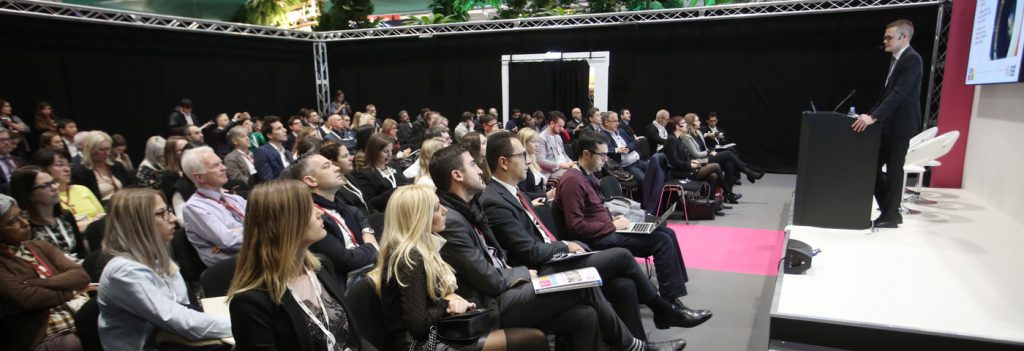Collaboration between the public and private sectors was a key theme on the second day of WTM London – the leading global event for the travel industry – as destinations, operators, airlines and ministers debated ways to boost travel and tourism around the world.
Tourism ministers from across Latin America convened at WTM London as part of their strategy to work together to raise the region’s profile.
Marx Beltrao, Brazil’s Minister of Tourism, said no Latin American countries were currently among the top 10 nations for hosting international events and that Brazil had fallen from sixth place to its current 11th spot.
“Our meeting here today only makes sense if we unite together,” he said.
The ministers will reconvene at WTM Latin America next April.
Charlie Cracknell, the event’s senior exhibition director, said: “WTM Latin America is a gateway to Latin America. Our commitment is to make sure Latin America is put on the global map. We are exposing Latin America to the international market but bringing the international market to Latin America.”
Meanwhile, Finnair – which is 56% government-owned – plans to double the number of flights to Asia in the next year.
Finnair chief executive Pekka Vauramo said the carrier will use its geographical advantage to expand services to Asia, with support from the Finnish government.
The airline is now in expansion mode following a restructuring and a fleet renewal programme.
The healthy US$3.7 trillion global wellness economy was in the spotlight during the WTM London Wellness Travel Symposium.
The wellness tourism sector accounts for US$563 billion of that, and is growing nearly twice as fast as overall tourism.
Delegates heard from several destinations about the importance of partnerships between the public and private sectors when developing wellness tourism.
Case studies include India, “the land of yoga”, and Iceland’s Blue Lagoon.
In the UK, spa towns such as Bath and Buxton are seeing a revival, while Wales is planning a £200 million lakeside development called the Llanelli Wellness and Life Science Village.
Another great example of collaboration across borders is the UNWTO Silk Road Programme, which incorporates 33 countries, from Italy and Greece in the west, to China and Japan in the east.
The UNWTO Silk Road Seminar heard how sharing on social media can help to promote sustainability.
Politimi Vrachati, the Greek National Tourism Organisation’s Head of Publications and Audio-visual Media, advised delegates to “promote experiences, not just places” and “perfect the art of story-telling”.
Kyrgyzstan said calls to action in social media messages helped to recruit volunteers for activities such as a recent glacier-cleaning event.
Another session on social media heard how bloggers and brands can build relationships with their audiences.
The standing room-only session on the WTM Global Stage – called Personalisation for Bloggers and Brands – heard Julie Falconer talk about the amount of work she has to put into her the blog, A Lady in London, as her follower numbers rise.
“The first thing I do in the morning is respond to overnight comments to my audience and it’s the last thing I do at night. I don’t have a life,” she said.
“With more platforms, it’s getting more difficult. You have to ring-fence your time and be strict with yourself.”
Elsewhere, the Women in Travel Meetup urged travel firms to consider the needs of women aged over 50 in their marketing and recruitment strategies.
Rachel O’Reilly, Kuoni UK head of communications, told the session: “Over-50s are very different to what they were a few decades ago; they’re very cool people and we need to think about them differently.”
The speakers also noted a rise in older women forging new careers, and debate chair Sylvia Weiler – Sojern’s Vice-President of Audience, Strategy & Development – commented: “I have many friends in their 40s who have started new careers. People are taking risks and I think that comes with maturity and confidence.”
WTM London is the event where the travel and tourism industry conducts its business deals. Buyers from the WTM Buyers’ Club have a combined purchasing responsibility of $22.6 billion (£15.8bn) and sign deals at the event worth $3.6 billion (£2.5bn).
-Ends-
World Travel Market London
WTM London, the leading global event for the travel industry, is the must-attend three-day business-to-business exhibition for the worldwide travel and tourism industry.
Almost 50,000 senior travel industry professionals, government ministers and international press, embark on ExCeL – London every November to network, negotiate and discover the latest industry opinion and trends at WTM London.
WTM London is the event where the travel industry conducts and concludes its deals. WTM London will generate around £2.5 billion of travel industry contracts.
WTM London is part of Reed Travel Exhibition’s World Travel Market events, which also includes Arabian Travel Market, World Travel Market Latin America and World Travel Market Africa. www.wtmworld.com
Reed Travel Exhibitions
Reed Travel Exhibitions (RTE) is the world’s leading provider of exhibitions in the travel and tourism industry. Its wide-ranging portfolio of events around the globe covers leisure travel, luxury travel, meetings, incentives and business travel, as well as golf, ski and spa travel.
RTE, which organises more than 22 events around the world, includes three divisions; World Travel Market, IBTM Events and International Luxury Travel Market.
RTE is a business unit of Reed Exhibitions.
About Reed Exhibitions
Reed Exhibitions is the world’s leading events organiser, with more than 500 events in 43 countries. In 2014 Reed brought together more than seven million event participants from around the world generating billions of dollars in business. Today Reed events are held throughout the Americas, Europe, the Middle East, Asia Pacific and Africa and organised by 41 fully staffed offices. Reed Exhibitions serves 43 industry sectors with trade and consumer events. It is part of the RELX Group plc, a world-leading provider of information solutions for professional customers across industries.
